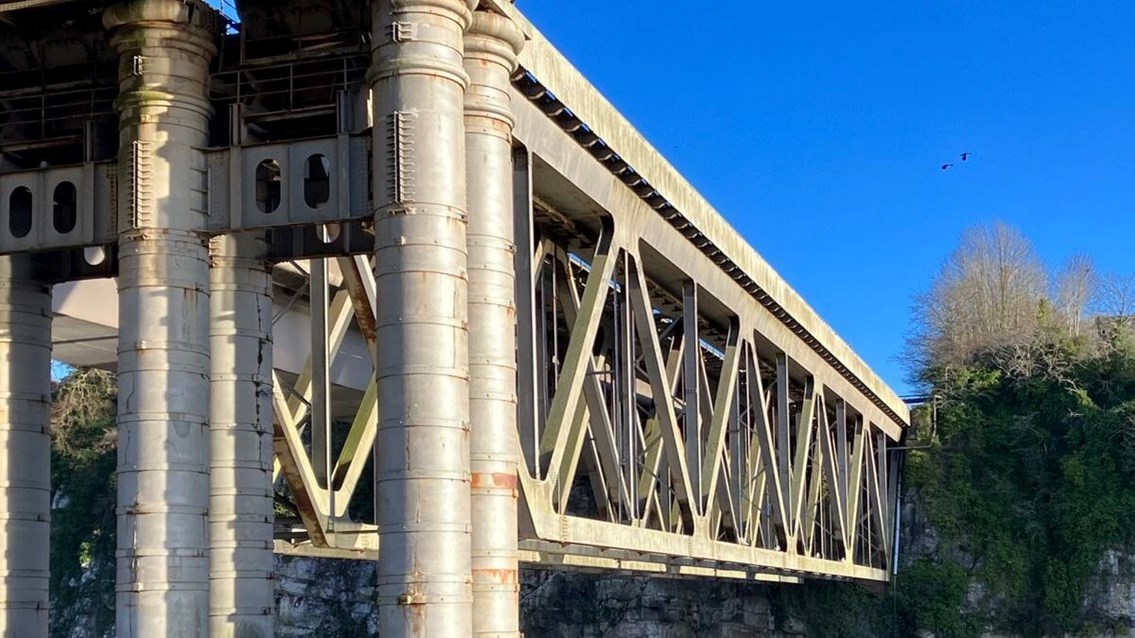The 170-year-old bridge over the river Wye is undergoing a major refurbishment as part of a wider package of work to secure the future of the Severn Estuary line.
Rail passengers travelling on the Severn Estuary Line can look forward to crossing the historic Chepstow Viaduct for many years to come as Network Rail begins its £4.6m refurbishment.
The Grade II listed bridge carries passenger and freight trains over the river Wye between South Wales and the West Country, Midlands and north of England.
This investment is part of a larger package of work Network Rail is delivering on this section of the Wales and Borders route, with intensive resilience upgrades also taking place towards Lydney as part of the Severn Estuary Resilience Programme.
Engineers will carry out steelwork repairs, waterproofing, masonry repairs, as well as strengthening and re-constructing the abutments on Chepstow Viaduct.
The historic viaduct was designed by Brunel and opened in 1852. Although the majority of the structure has since been changed, Brunel’s original tubular supports are still in-place. It is considered one of Brunel’s major achievements and became the basis of design for the iconic Royal Albert Bridge, which links Devon and Cornwall.
Lee Ackerman, scheme project manager at Network Rail, said: “It’s a privilege to be upgrading a historic piece of railway engineering. This bridge has played an important role in linking Wales and England for more than 150-years, and we plan on ensuring that it can continue to do that for many more to come.
“As always, we are aiming to complete this project as safely and as quickly as possible while keeping disruption to an absolute minimum.”
The work on Chepstow Viaduct is not expected to disrupt train services with the majority taking place from 07:30 to 17:30 to reduce noise disturbance for the local community. There will be some dates when our engineers will need to work through the night. These include:
- Wednesday 5 – Tuesday 11 April (inclusive)
- Friday 19 – Friday 26 May (inclusive)
- Friday 30 June – Thursday 27 July (inclusive)
- Wednesday 2 – Wednesday 30 August (inclusive)
- Tuesday 5 September – Monday 2 October (inclusive)
- Friday 6 October – Thursday 2 November (inclusive)
- Wednesday 8 November – Tuesday 5 December (inclusive)
